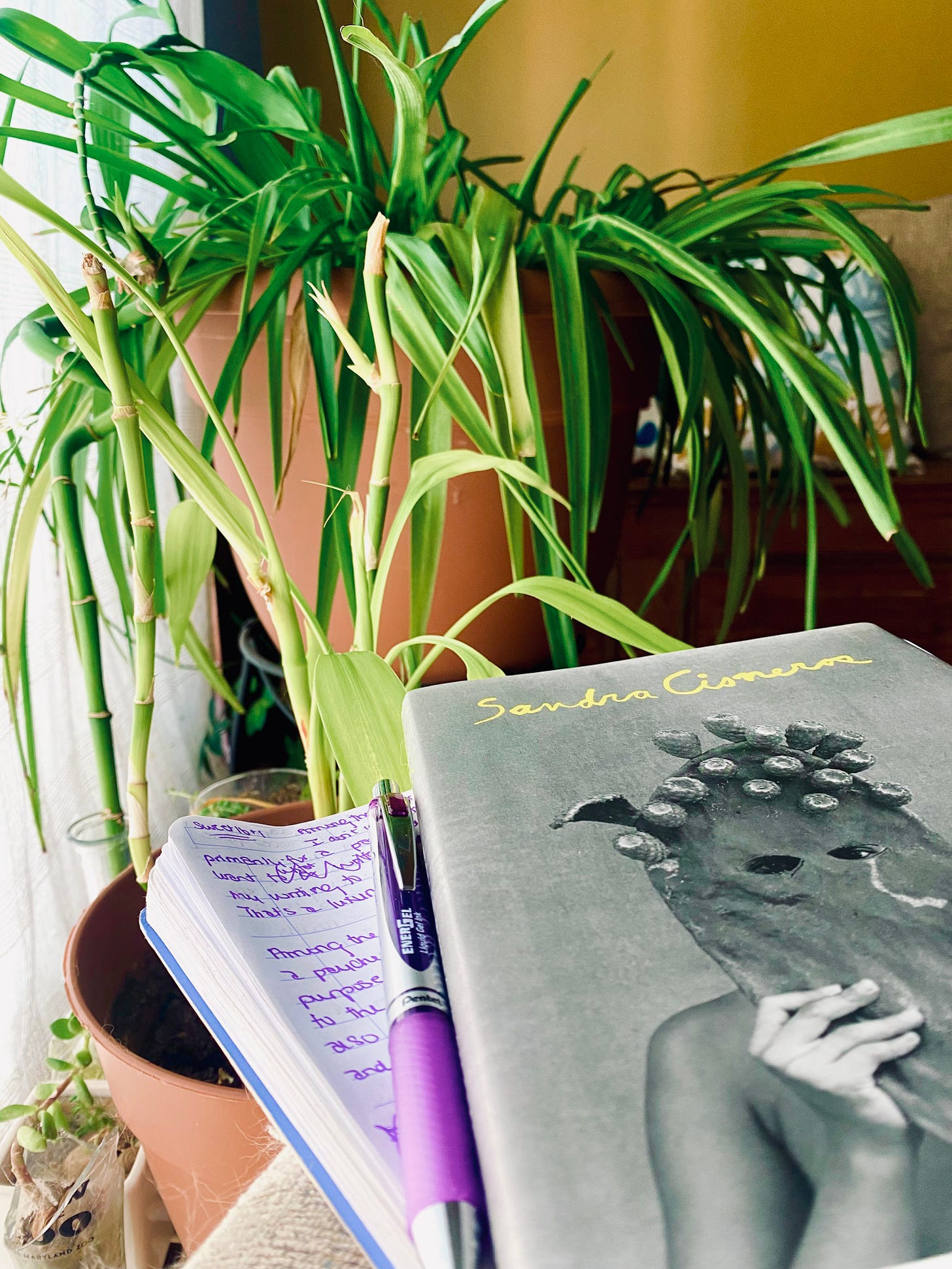Hi, writers! Thank you for reading Real Quick. I’m Kerry, a Baltimore-based writer and life-long reader. I started this newsletter during my recent transition away from the classroom and toward whatever comes next. This has been a time in my working life unlike any other; I’m grateful for your company along the way.
Just in the few months that I’ve been writing Real Quick, my professional plans—actually, to call them “plans” is an overstatement; they were more like ideas—have changed a number of times. When it became clear that I needed to leave teaching, I initially thought I’d work in an education-adjacent field. Maybe EdTech. Curriculum-writing. It was too soon, though; the thought of applying to those jobs felt (and still feels) like poking an exposed nerve.
So, even though I’ve long said that I don’t want to write primarily for the paycheck, I thought that this seemed like the time, if ever there was one, to give it a shot anyway. After all, I also used to say I never wanted to teach!
Except I’m already realizing I was right all along—I don’t want to rely on my writing to make a living.
It’s not that I don’t want, or think I deserve, to be paid for my writing. (Early on, I was so grateful to be published I didn’t mind writing for free. It only took getting paid once to recognize that I should, in fact, receive compensation for the time and effort I invest.) It’s that, for me, there’s a difference between writing because it feels right—I actually have something to say, I’m not doing it simply for a deadline’s sake—and writing because I need to pay my mortgage (and health insurance, and grocery bills, and internet provider, and and and).
My whole life, I’ve written because it’s who I am. It’s how I make sense of what I see and feel. It’s how I best connect with others. By depending on my writing for survival, it warps my relationship with writing from something fulfilling to something financial. While I’ll always be committed to writing; I never want to feel constrained by it. And so, I’ll be re-assessing (again), figuring out my next professional steps.
I’m writing
an essay about gun violence, and why we need to continue to care about it—no matter how discouraged or desensitized we may feel. Each of my contributions to this conversation has been minimal, but because I write them for a purpose, not a paycheck, readers tend to find them thoughtful and resonant. I’m proud; as I figure out other sources of income, my writing will be free to offer perspectives that are authentic. Unforced.
I’m reading
Woman Without Shame by Sandra Cisneros, my favorite author. While I devour her narratives, I nibble my way through her poetry. I find that, sometimes, I need to sit with, or re-read, a poem before I’m ready for the next one.
I’m recommending
Jeanna Kadlac’s newsletter astrology for writers—I became a paid subscriber several months ago and have purchased one of her courses because I find so much value in her pairing of the ancient and infinite universe with my day-to-day experiences as a writer. Her interpretations help me make sense of the unchartered terrain ahead of me.
CliftonStrengths, an assessment that ranks 34 of your strengths: things like connectedness, adaptability, and ideation. From what I can tell, the questions are similar to those you’d answer on a Meyers-Briggs or Enneagram assessment. I’ve heard a number of writers rave about how enlightening these results are, and how they’ve improved their productivity. When my financial situation stabilizes, I’ll take CliftonStrengths and report back; in the meantime, please let me know if you’ve taken it, or plan to!
Any and everything Rachael Herron shares. She’s the writer who, via her podcast, first introduced me to CliftonStrengths. I’ve learned so much about the writer-life from Rachael and am grateful for all the options she offers to continue doing so. I certainly need them.




